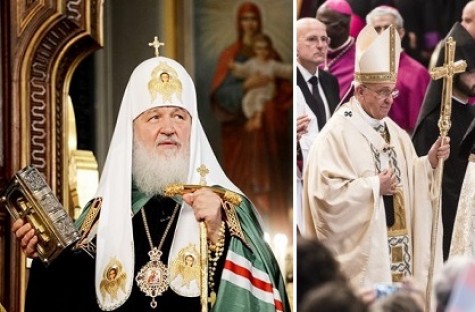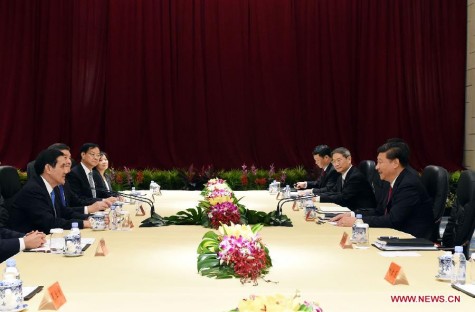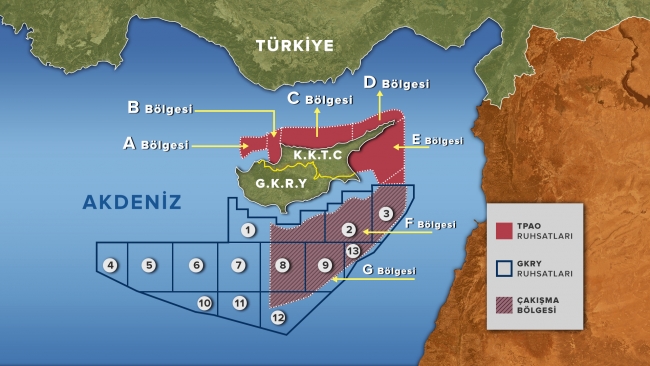
Last month, excerpts from an interview given by Armenia’s Deputy Minister of Foreign Affairs Shavarsh Kocharyan to an Armenian TV channel surfaced.[i] During the interview, the channel’s anchorman Petros Ghazaryan kept asking Kocharyan whether or not Armenia recognized Turkey’s borders. Meanwhile, Kocharyan kept dodging the question by failing to give a concrete answer and by trying to sideline the interview. The question dodging revolved around the 2009 Protocols signed between Turkey and Armenia that were meant to establish diplomatic relations and improve bilateral relations between the two countries. Anchorman Ghazaryan’s insistence on finding out about what Armenia’s stance was on Turkey’s current borders, and Deputy Minister Kocharyan’s insistence on refusing the answer the question eventually reached comedic heights.
The question dodging began when the anchorman attempted to make the following statement: “When we signed the Protocols which read that we recognized the borders of modern Turkey…” This was interrupted by Kocharyan, who stated there was no such thing in the Protocols. When the anchorman attempted to continue in the same vein, Kocharyan stated that recognition in the Protocols was within the context of the documents of international law. When the anchorman pressed on with the issue, Kocharyan implied that no such relevant document existed and added that the Protocols made no mention of the Treaty of Kars (1921).
It should be noted here that the Treaty of Kars had established Turkey’s borders with the Soviet republics of Armenia, Azerbaijan and Georgia. After gaining its independence with the dissolution of the Soviet Union, Armenia refused to accept the validity of the Treaty of Kars, and instead promoted the idea of the validity Treaty of Sèvres (that was designed to completely partition the territories of the Ottoman Empire). Yet, the Treaty of Sèvres was never ratified by the Ottoman Empire and was subsequently nullified by the Treaty of Lausanne (1923).
Going back to the interview; after Kocharyan made his last remark, the anchorman asked if this meant then that Armenia did not recognize Turkey’s borders. Kocharyan replied by stating that Turkey dreamed of the Treaty of Kars being included in the Protocols, but that this was not the case. He then went off on a tangent about Turkish politics, and commented about how Deniz Baykal, former leader of Turkey’s Republican People’s Party (CHP), had apparently stated back in 2009 that Turkey did not recognize the Turkey-Armenia border (in fact, Baykal had said the exact opposite; that Armenia refused to acknowledge the Treaty of Kars that had he said had established the Turkey-Armenia border[ii]).
After Kocharyan’s tangent, the anchorman replied by pointing out that Kocharyan had not answered the question. When Kocharyan bizarrely replied that he did, the anchorman simply asked: “Does Armenia recognize Turkey’s borders or not?”
One would think that such a simple question would require a simple “yes” or “no” answer. Kocharyan, however, insisted on dodging the question by talking about Armenia’s goal of following bilateral normalization without preconditions. The anchorman then repeated the very same question. As if it was relevant, Kocharyan asked the anchorman: “What do you think?” The anchorman naturally indicated that his thoughts on the issue were not relevant.
Following this, Kocharyan again attempted to steer the discussion off course by stating that talking about border recognition was useless without the establishment of diplomatic relations. The anchorman reminded Kocharyan that diplomatic relations were not mandatory for border recognition, but this was to no avail.
At this point, the anchorman tried a different approach. He referred to the “Pan-Armenian Declaration on the 100th Anniversary of the Armenian Genocide” that was ceremoniously issued by the President of Armenia Serzh Sargsyan this January. Pointing to the references made by the Declaration to the Treaty of Sèvres and US President Woodrow Wilson’s Arbitral Award (which aimed to give a large part of the Ottoman Empire’s territories to Armenians, territories in which Armenians had never been anywhere near a majority), the anchorman asked if making such references presented a moral issue in terms of recognizing Turkey’s territorial integrity. Kocharyan again demonstrated his formidable question dodging skills by nonsensically replying that Armenia’s position was clearly represented in the Protocols (even though he had previously, on another occasion, said that the Declaration presented the desires and notions of all layers of Armenians[iii]).
For the anchorman, this meant that Armenia had no clear position concerning the recognition of Turkey’s borders. Kocharyan disagreed, stating that Armenia’s position was mentioned in the Protocols. The anchorman asked what then, was Armenia’s position. Kocharyan again provided no answer, and stated that Armenia simply recognized what was said in the Protocols and nothing more (also, he needlessly mentioned Deniz Baykal again).
The anchorman had grown tired by this point, he simply remarked: “Mr. Kocharyan, I think I am trying to understand a very simple thing.” Kocharyan was determined to not give an answer, and simply blamed Turkey for placing preconditions for the establishment of relations.
With this, Kocharyan had successfully dodged the question of whether or not Armenia recognized Turkey’s borders. He had defeated the anchorman who had been determined to find the answer.
The answer though, is simple. Armenia is ambiguous about Turkey’s borders. This is made apparent not only by the question dodging exhibited by Kocharyan, but also by the Pan-Armenian Declaration that makes references to the Treaty of Sèvres and Wilson’s Arbitral Award.
Regarding the Declaration, Kocharyan had on one occasion said the following: “There are people who start panicking at merely mentioning the Sevres Treaty. I cannot understand why. The Pan-Armenian Declaration does not say that Armenia will be seeking to reach the borders mentioned in that treaty. It only says that we ‘appreciate’ it.”[iv] This is a way of juggling words, pure and simple. The word “appreciate” here sounds mild to the ear, but it nevertheless means that Armenia has other aspirations for the Turkey-Armenia border. However, Armenia simply lacks the capacity to physically challenge the Turkey-Armenia border, so instead does it verbally.
Respecting a neighboring state’s territorial integrity is a prerequisite for establishing and maintaining good neighborly relations. Unlike Turkey, Armenia, for whatever reason, simply cannot bring itself to perform this act of respect that would showcase its good intentions. And until it does, this issue will continue to be a major hurdle in the normalization of relations between the two countries.
Lastly, it should be added that Armenia’s revisionist aspirations for borders are not limited to that of Turkey’s, but encompasses the borders of all its neighbors. This is concretely demonstrated by Armenia’s ongoing occupation of 20% of Azerbaijan’s territory, despite four United Nations Security Council resolutions calling for the end of the occupation.
[i] “Armenia’s stance on Turkish borders is to avoid a dead-end”, Mediamax, http://www.mediamax.am/en/news/armeniaturkey/13322/
[ii] “Baykal: Görüşme haklı olduğumuzu gösterdi”, Hürriyet, http://www.hurriyet.com.tr/gundem/12487550.asp
[iii] “Armenian Deputy FM says desires of all layers of Armenians are expressed in the Genocide Decleration”, Armenpress, http://armenpress.am/eng/news/796287/armenian-deputy-fm-says-desires-of-all-layers-of-armenians-are-expressed-in-genocide-declaration.html
[iv] “Armenian Deputy FM Defends Anti-Turkey Document”, Armenia TV (02.03.2015).
© 2009-2025 Center for Eurasian Studies (AVİM) All Rights Reserved
No comments yet.
-
 TURKISH-ARMENIAN CONTROVERSY CONTINUES TO BE INSTRUMENTAL FOR THE CHURCH TO INCITE RELIGIOUS AND ETHNIC ANIMOSITY
TURKISH-ARMENIAN CONTROVERSY CONTINUES TO BE INSTRUMENTAL FOR THE CHURCH TO INCITE RELIGIOUS AND ETHNIC ANIMOSITY
Mehmet Oğuzhan TULUN 21.06.2015 -
 A HYPOCRITICAL CALL FOR INTER-RELIGIOUS DIALOGUE
A HYPOCRITICAL CALL FOR INTER-RELIGIOUS DIALOGUE
Mehmet Oğuzhan TULUN 17.09.2015 -
 WESTERN POLITICAL CHRISTIANITY IN THE NEW TRUMP ERA
WESTERN POLITICAL CHRISTIANITY IN THE NEW TRUMP ERA
Mehmet Oğuzhan TULUN 20.03.2025 -
 POPE FRANCIS SHOULD HEED PATRIARCH KIRILL’S REMARKS
POPE FRANCIS SHOULD HEED PATRIARCH KIRILL’S REMARKS
Mehmet Oğuzhan TULUN 12.01.2016 -
 HISTORIC MEETING BETWEEN PRESIDENT XI OF PRC AND PRESIDENT MA OF ROC TAKES PLACE IN SINGAPORE
HISTORIC MEETING BETWEEN PRESIDENT XI OF PRC AND PRESIDENT MA OF ROC TAKES PLACE IN SINGAPORE
Mehmet Oğuzhan TULUN 09.11.2015
-
 GCSC URGES THE EU TO REVOKE TURKEY’S CANDIDATE STATUS
GCSC URGES THE EU TO REVOKE TURKEY’S CANDIDATE STATUS
Hazel ÇAĞAN ELBİR 16.06.2020 -
THE SANDCASTLE GIRLS – BOOK REVIEW
Hazel ÇAĞAN ELBİR 20.12.2012 -
 BAKALIAN CASE APPEAL HEARING HELD IN CALIFORNIA
BAKALIAN CASE APPEAL HEARING HELD IN CALIFORNIA
Aslan Yavuz ŞİR 08.02.2019 -
 THE AMBIGIOUS RESOLUTION ADOPTED BY THE BELGIAN HOUSE OF REPRESENTATIVES REGARDING THE EVENTS OF 1915
THE AMBIGIOUS RESOLUTION ADOPTED BY THE BELGIAN HOUSE OF REPRESENTATIVES REGARDING THE EVENTS OF 1915
Mehmet Oğuzhan TULUN 28.07.2015 -
RIGHTS OF THE CHRISTIANS IN TURKEY AND THE US CONGRESS
Ömer Engin LÜTEM 20.06.2011
-
25.01.2016
THE ARMENIAN QUESTION - BASIC KNOWLEDGE AND DOCUMENTATION -
12.06.2024
THE TRUTH WILL OUT -
27.03.2023
RADİKAL ERMENİ UNSURLARCA GERÇEKLEŞTİRİLEN MEZALİMLER VE VANDALİZM -
17.03.2023
PATRIOTISM PERVERTED -
23.02.2023
MEN ARE LIKE THAT -
03.02.2023
BAKÜ-TİFLİS-CEYHAN BORU HATTININ YAŞANAN TARİHİ -
16.12.2022
INTERNATIONAL SCHOLARS ON THE EVENTS OF 1915 -
07.12.2022
FAKE PHOTOS AND THE ARMENIAN PROPAGANDA -
07.12.2022
ERMENİ PROPAGANDASI VE SAHTE RESİMLER -
01.01.2022
A Letter From Japan - Strategically Mum: The Silence of the Armenians -
01.01.2022
Japonya'dan Bir Mektup - Stratejik Suskunluk: Ermenilerin Sessizliği -
03.06.2020
Anastas Mikoyan: Confessions of an Armenian Bolshevik -
08.04.2020
Sovyet Sonrası Ukrayna’da Devlet, Toplum ve Siyaset - Değişen Dinamikler, Dönüşen Kimlikler -
12.06.2018
Ermeni Sorunuyla İlgili İngiliz Belgeleri (1912-1923) - British Documents on Armenian Question (1912-1923) -
02.12.2016
Turkish-Russian Academics: A Historical Study on the Caucasus -
01.07.2016
Gürcistan'daki Müslüman Topluluklar: Azınlık Hakları, Kimlik, Siyaset -
10.03.2016
Armenian Diaspora: Diaspora, State and the Imagination of the Republic of Armenia -
24.01.2016
ERMENİ SORUNU - TEMEL BİLGİ VE BELGELER (2. BASKI)
-
AVİM Conference Hall 24.01.2023
CONFERENCE TITLED “HUNGARY’S PERSPECTIVES ON THE TURKIC WORLD"









